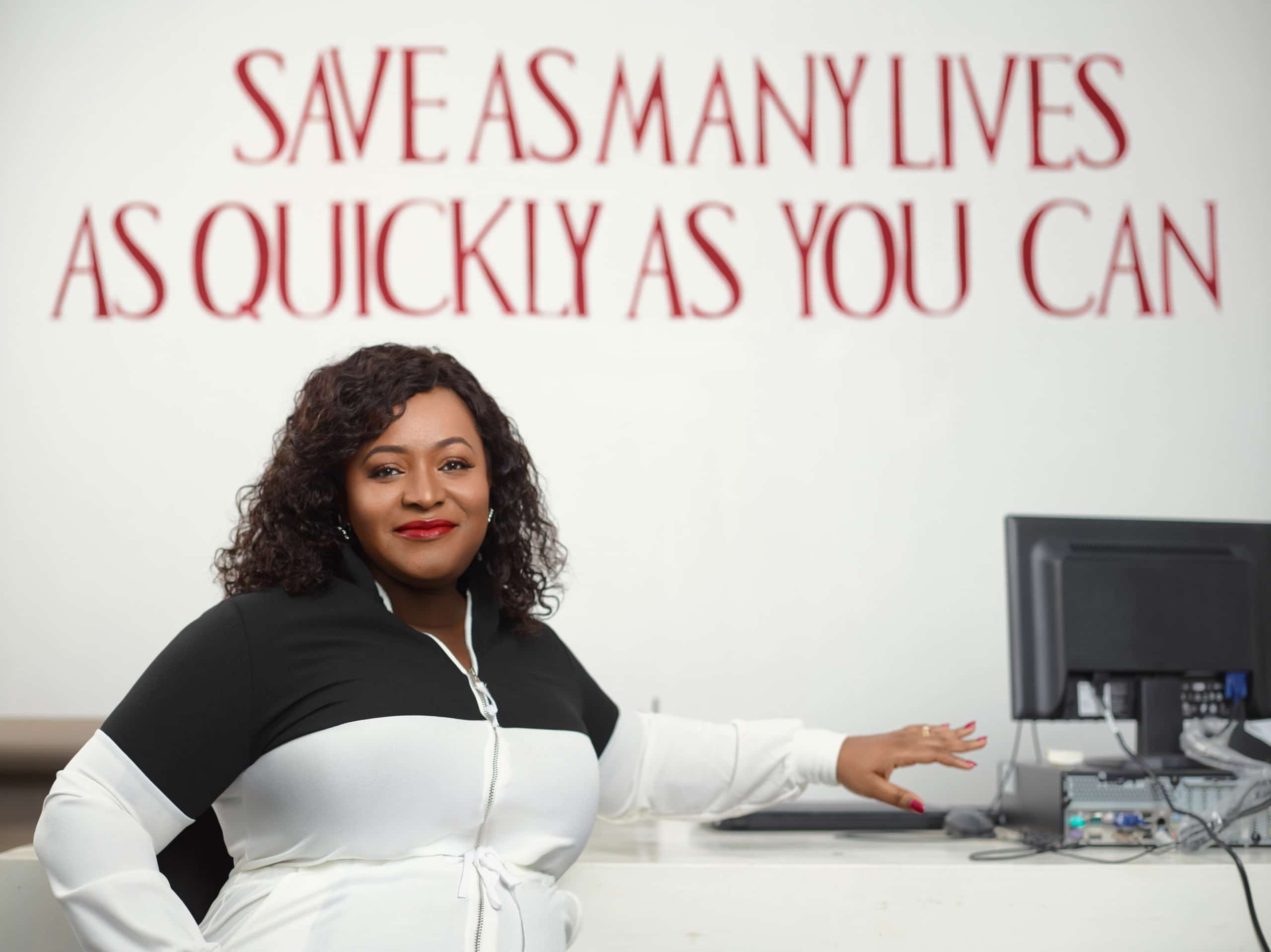Temie Giwa-Tubosun supplies blood to hospitals and oxygen to Covid-19 patients in Nigeria. The special deliveries arrive with doses of compassion and hope.
Life cannot be interrupted, can it? Hence, Temie Giwa-Tubosun’s business clock runs 24 hours a day, all year, delivering life-saving medical products to hospitals across Nigeria.
“We never close our doors. In the past four years, I don’t remember a time when we have not had our doors open; Covid or no Covid, Christmas Day or no Christmas Day,” says Giwa-Tubosun, matter-of-factly, in an interview with FORBES AFRICA.
Long before Covid-19 and the reimagined focus on access to health into Africa’s remotest corners, Giwa-Tubosun had decided that if she was going to make a success of anything, it was going to be by using the power of data, technology and logistics to deliver essential medical supplies in Nigeria.
In 2016, she founded LifeBank, a healthcare delivery solution that represented the culmination of her own personal journey of heartache, tenacity and commitment.
The Nigerian-American started with supplying blood, and now delivers everything from oxygen to insulin for those in critical need of them. And now, also ventilators for serious Covid-19 patients.
“We knew we needed to be of use to our country when the coronavirus hit. I was very worried about the access to ventilators and I was doing a lot of work around making sure ventilators are available. We called all the hospitals and put a list together to make them available to those who needed it.
“Then after that, I felt like we needed to do more testing and we partnered with other agencies and pushed for the first mass-testing drive through testing centers in Nigeria. We have done two and we are working on doing two more,” says the LifeBank CEO.
Her latest venture is an oxygen delivery service called AirBank for Covid-19 victims. According to Giwa-Tubosun, about 40% of Covid-19 patients need oxygen and only 5% need ventilators.
“The reason people don’t talk about oxygen is because in the West, access to oxygen is not a problem so there has not been a focus on it, but in Nigeria, access to oxygen is a major problem so we thought we need to make sure oxygen is available to [everyone] across the country. So, we then started what we called AirBank and started delivering oxygen to isolation centers across the country.”
Born and raised in Nigeria, in her formative years, Giwa-Tubosun shifted to the United States (US) with her five siblings when her mother won the US visa lottery, allowing the family to escape a life of poverty in Nigeria.
“It was a nice childhood but things got bad when my parents stopped getting paid as teachers and we got really poor,” recalls Giwa-Tubosun.
Her new life in the US, the land of dreams, gave her purpose.
After obtaining a Masters in Public Administration from the Middlebury Institute of International Studies at Monterey, Giwa-Tubosun joined the World Health Organization (WHO) in Switzerland, where she worked on health financing, before moving on to a firm in Minnesota back in the US where she was responsible for health systems and technologies.
Then came a fellowship with Global Health Corps, a non-profit organization founded by Barbara Bush, the daughter of former US president George W Bush. Here, Giwa-Tubosun was part of a group of young leaders in global health for about a year before joining the United Nations Development Programme (UNDP) in Uganda, where she worked on health supply chains before moving to Nigeria, to get married. After a stint working in healthcare with Lagos State as an operations manager, she decided to give motherhood a try.
“I went back to Minnesota to have my child but it was a very difficult pregnancy. I had a lot of complications; he was born very early and I was on bed-rest for a while and it was through this period that I started thinking more about my health.”
And the health of other mothers like her.
After doing some research around maternal health, she found that the number one cause of maternal death was postpartum hemorrhage, a condition in which a woman bleeds heavily after giving birth.
“It is a very big problem and has the highest [incidence] of maternal death. Other causes of maternal death take about five hours but this one is very quick,” says Giwa-Tubosun.
“The data is that eight out of 10 women who have postpartum hemorrhage in Africa could be saved with access to blood.”
LifeBank uses a supply chain system that can make cost-effective deliveries of critical supplies round the clock in every village, town and city across the country.
“We have saved over 5,000 people. And you will see little cards on the walls [in our office with] the names of the persons we saved and the date we saved their lives, so this impact is one of the most important things for me,” says Giwa-Tubosun, who recently was also adjudged sub-Saharan Africa winner of the 2020 edition of the Cartier Women’s Initiative.
But she has no time to rest on her laurels. She says she continues to seek ways to reach out to those who do not have easy access to good healthcare services.
“It’s been incredibly gratifying to do this work,” says Giwa-Tubosun.
Indeed, her words matter, at a time when passion and compassion must surely overtake commerce.
